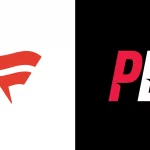What Is Contrarian Betting? Win by Remaining Far From the Madding Crowd


According to the wisdom of the crowd theory, large crowds are more likely to make accurate predictions than individual experts. The idea is that the views of individuals are inherently biased. In contrast, when you combine the knowledge of a large group of people, this bias is eliminated. Therefore, a more coherent result is achieved.
However, many of the most successful sports bettors take the opposite approach. These ‘contrarians’ go against the grain and bet against what the public thinks.
Rather than going against convention for the sake of it, contrarian sports betting can take advantage of common betting errors and bias to benefit from a value bet. This article outlines contrarian betting and whether it is worth doing. It also provides some examples of it in action.
What Is Contrarian Sports Betting?
It is a tactic where you bet against the public. Successful investors often use contrarian thinking in the financial sphere. If a high percentage of casual investors dislike a certain investment, their disdain could cause it to become undervalued. Indeed, legendary investors such as Charlie Munger and Warren Buffett made huge sums of money by purchasing value stocks.
You can utilize contrarian thinking when it comes to sports betting too. It involves going against the consensus in a betting market. Contrarian betting, also known as ‘fading the public,’ takes advantage of public bias and the associated inflated lines.
One of the most compelling reasons why contrarian sports betting works is the enormous profits enjoyed by bookmakers. Let’s face it, on average, the general public loses! Therefore, it makes sense to consider going against the grain.
Why Is the Contrarian Betting System a Worthwhile Endeavor?
The casual punter routinely ignores data and analytics and performs little more than a cursory analysis of an event. Suppose there’s a strong favorite in horse racing. And that the odds on the horse are cut in the lead-up to the race. Many bettors make the mistake of following the price, convinced the favorite is a ‘sure thing’. They then watch in despair as the front-running favorite’s stamina betrays him, ultimately leading to a disappointing third place.
For the record, this hypothetical race is a 3.5-mile race on heavy ground. If punters had bothered to check the horse’s form, they would have discovered that it had never won a race longer than 3 miles and had a spotty record on heavy ground.
On other occasions, they bet with their gut and back a soccer team based on reputation rather than ability.
Casual punters usually bet on emotion or allow bias to take over. They tend to gravitate towards favorites without knowing whether they’re getting value. After all, such bets have a higher statistical chance of winning. And most people enjoy the thrill of seeing a bet come in.
Psychologically, it is easier to accept losing on a favorite; you can say it is bad luck or the strong team had an ‘off ‘night. It is much tougher to come to terms with losing on an underdog because it was a silly wager in hindsight. Did you REALLY think the Giants would beat the Eagles in Philadelphia? What a terrible decision!
The general public also likes to back the home side. They may have attended a few games or certainly watched them on television. Plus, they can hear the noise made by the crowd. Surely, the road team can’t cope with the vocal opposition of the masses?
Also, there is a bias toward high-scoring events, as it is fun to bet on a soccer match having lots of goals or an NFL game that turns into a shootout. For instance, it is highly unlikely that anyone thought the 54-51 game between the Rams and Chiefs in 2018 was anything other than a memorable match.
Most importantly, Average Joe makes up a big percentage of the market, so when the public bets en masse, they can significantly move a betting line. It is in such scenarios that contrarian bettors can strike.
What Are Suitable Contrarian Sports Betting Strategies and Markets?
Any market where the public is heavily involved! This could mean major events like the World Cup final or the Super Bowl. In essence, you’re looking for heavily bet events where the public’s bets have skewed the odds away from where they should logically be. For instance, in an NFL spread, if 70% of bettors are backing one side of the line, betting on the side receiving 30% of the bets is potentially a sensible contrarian move.
In North America, basketball and American football receive the most public betting action. Therefore, it is wise to focus on the NFL, the NBA, and big college games. In Europe, soccer is the big betting sport, with the English Premier League, Spanish La Liga, and the UEFA Champions League the best competitions to concentrate on.
In general, it is best to stick with the over/under and spread lines. This is because they tend to receive a higher proportion of bets than the Moneyline. Suppose there are 100,000 wagers on a game with 60% on the spread, 28% on totals, and 12% on the Moneyline. In each market, there is a 70/30 split on one side of the line, so going to the 30% side of the line is the contrarian play.
Yet, you should focus your contrarian sports betting efforts on the spread because it has the biggest share of bets. Clearly, the public is significantly overbetting on one side of the line. And you can take advantage by going the other way. The 30% of wagers on the Moneyline is too small a sample size to determine whether it is a good contrarian option.
Given the importance of betting volume, contrarian betting doesn’t work that well on sports like ice hockey and baseball. Fewer people bet on NHL and MLB games than NFL and NBA matches. Indeed, if the betting volume is low enough, it might be more fruitful to side with the higher percentage side of the line, as that’s probably where the smart money is going!
Contrarian Sports Betting in Action – Taking Advantage of Inflated Lines
The NFL Championship game weekend is a great example of potentially finding suitable contrarian betting opportunities.
The screenshot above, taken fromAction Network, shows the percentage of bets on the spread line for the NFC and AFC Championship games. In the NFC game between the San Francisco 49ers and the Philadelphia Eagles, 69% of the money was on the Eagles, with a -2.5-point handicap to overcome.
In the AFC matchup between the Cincinnati Bengals and the Kansas City Chiefs, 69% of the bets were on the Bengals to win with a +1.5-point advantage.
Regarding the NFC game, the consensus was that the 49ers would fall short due to the inexperience of their quarterback, Brock Purdy, who struggled against the Dallas Cowboys’ defense. The Eagles have an even better defense, so many felt that Purdy and the Niners wouldn’t do enough to win. As it happened Purdy got injured at the start of the match. Then, Josh Johnson, the fourth-string QB, played for a while before getting a concussion!
Finally, the Eagles won by 24 points, easily defeating the points spread for the game.
Meanwhile, in the AFC match, the Chiefs’ QB, Patrick Mahomes, sustained an injury to his ankle in the team’s win over the Jacksonville Jaguars. The danger was that he wouldn’t be as mobile in the pocket, a big issue since Mahomes’ mobility is one of his best qualities. However, the superstar quarterback led his team to a 3-point victory, beating the -1.5 spread.
One Win, One Loss for the Contrarians
In the second screenshot, we can see the percentage of bets AND the percentage of money wagered on a couple of fiat-accepting bookmakers. A staggering 76% of the money and 73% of the bets were on the over 48-point line in the Bengals versus Chiefs game. This wasn’t a shock, given the Chiefs’ reputation for engaging in high-scoring matches at Arrowhead in particular.
Yet, the massive skewing of bets toward the over side of the line means the under side was worth another look. Last season’s AFC Championship game between the pair ended 24-24 (Cincinnati won in OT), exactly on the 48-point line. Moreover, the Chiefs’ game with the Jaguars had 47 points, while the Bengals’ easy win over the Bills had just 37 points. Add Mahomes’ injury issues, and you could make a case for under 48 points.
In the end, the contrarians won as the game finished 23-20 to the Chiefs.
You might also notice that 68% of the Moneyline bets in the 49ers versus Eagles game were on the Eagles, but 56% of the money was on the Niners. Was this a case of the ‘sharp’ money going on the underdog? After all, San Francisco was an extremely strong side, even with a rookie QB. Also, the Eagles’ form tailed off toward the end of the regular season.
Perhaps a couple of easy victories over an average Giants team was only papering over the cracks? Undoubtedly, you could make a case for the 49ers winning the game. Yet, in the end, the early injury to Purdy meant an easy win for Philadelphia. So contrarians who backed the Niners lost.
All of this is an insight into the information you need to consider when deciding whether a certain market offers a contrarian sports betting opportunity.
Can a Contrarian Betting System Work When Playing Popular Casino Games?
In a certain sense. If you play against humans on crypto poker sites rather than machines, you can analyze what most players do. After all, the average player loses in the long term. So, if you spot their mistakes, you can change your play accordingly. Blunders often made by poker players include:
- Playing and chasing too many hands
- Failing to accurately estimate their chances of winning
- Erratic betting
- Sitting at tables with better players
- Bluffing too frequently
By doing the opposite of the above, you technically become a ‘contrarian’ and are far more likely to make money.
Regarding games of chance, contrarian betting doesn’t change the fact that the house has a clear edge. Nonetheless, you can limit your losses and perhaps enjoy the occasional profitable gambling session by avoiding the statistically poor plays made by people at your tables. It is too easy to get sucked in by the excitement, lose the run of yourself, and make foolish plays.
The following are bets you can make in casino games that improve your chances of winning. They are also contrarian insofar as a staggering number of gamblers don’t make these decisions:
- In blackjack, only surrender on 15 against dealer 10 and on 16 against dealer 9 through Ace
- In roulette, stick with the European wheel, as it only has one zero
- In craps, choose the “don’t pass line” wager instead of the popular “pass line” option
- In baccarat, bet on the dealer
- Remember that slots are often the games with the highest edge in the casino, so don’t expect to win when playing them
Is Contrarian the Best Betting System?
Not entirely. If you focus solely on going against the grain, you’ll spend much of the time betting on low-quality teams and the unders market! Also, you could make the mistake of looking for contrarian betting opportunities where none exist. Do not go against the public in games with a low betting volume, as there isn’t enough money wagered to cause an excessive movement in the odds line.
However, contrarian sports betting is potentially very useful in large betting markets that attract a lot of casual bettors. Their biases, lack of research, and tendency to stick with high-scoring bets, favorites, or home teams can change the price enough to create a value betting opportunity on the other side of the line. Use contrarian betting in conjunction with other tactics but remember, the general public is right sometimes too!
If you’re excited about the possibility of winning by dancing to a different tune to other bettors, check out our list of the best crypto sportsbooks and find a suitable contrarian betting opportunity!











